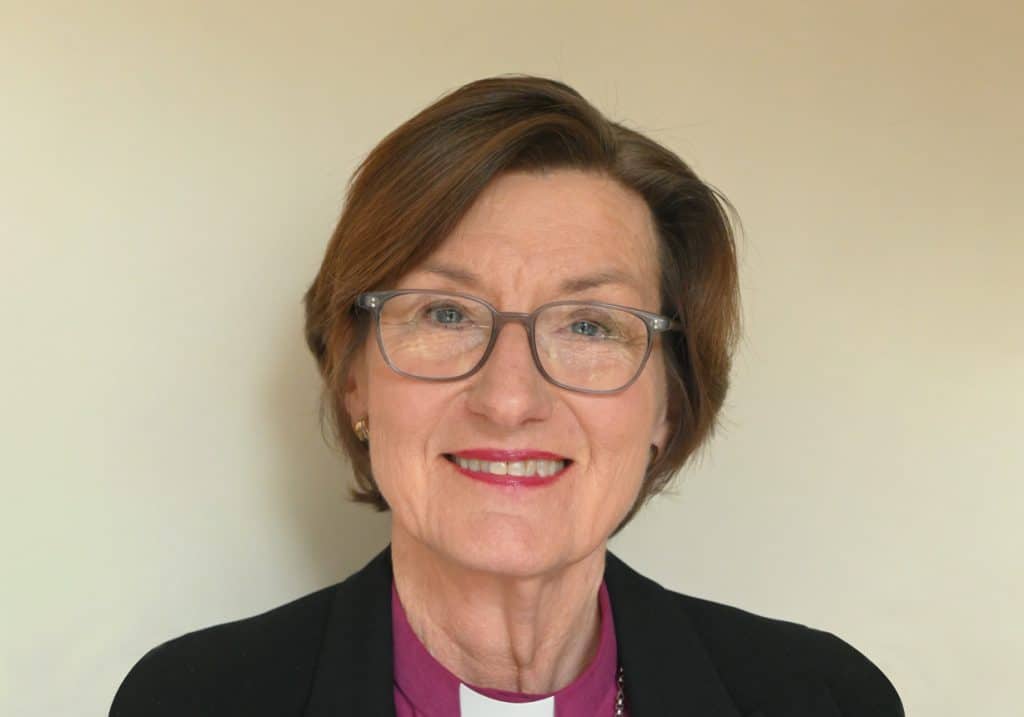
Stephen Cauchi
8 March 2022
Proposed quotas for female vicars will be abandoned if a new “once-in-a-generation” Clergy Legislation Review Bill is passed at the next Melbourne Synod.
Instead the draft bill proposes non-binding targets for increasing the number of female vicars, after a reference group dropped quotas from the bill as unworkable.
As proposed, the bill also makes provision for unresolvable pastoral conflict, and would abolish compulsory retirement ages for clergy and the diocesan stipends committee.
A review of all diocesan legislation relating to clergy, the bill is scheduled to be voted on at Melbourne Synod in October, after a draft goes out for consultation with church members and employees in March.
Clergy Legislation Review reference group chair Bishop Alison Taylor said the group had investigated quotas after Bishop Genieve Blackwell moved an amendment at synod asking for them to consider this option. But Bishop Taylor said both the group had concluded these were unworkable would not solve the problem.
Bishop Taylor said equal numbers of men and women were being ordained as priests within the diocese, but less than a quarter of senior priests overseeing parishes were women.
She said the question to ask was what had happened along the way to create this situation, where either women had been excluded, or excluded themselves.
Bishop Taylor said this meant there were not enough female priests with the experience to be a vicar, so quotas would not work.
She said the church needed to give female priests more experience, and tackle discrimination in the diocese, which say many parish representatives preferring male priests.
Bishop Taylor said the non-binding targets for increasing the number of female vicars would be set by Archbishop in Council, with directions to Assistant Bishops to increase the number of women being interviewed for vacant parishes.
She said working on women’s confidence, and the expectations of parishes, was key to making cultural change across the whole diocese.
Read more: Quotas were also proposed in several pieces of legislation coming to the 2021 synod and in several more for the 2022 synod.
Another new feature of the proposed Clergy Legislation Review Bill is its proposal for a system to deal with irretrievable pastoral breakdown in a parish.
This could include conflict between the vicar and the congregation or between two factions in the parish.
Bishop Taylor said that while there was already a system in the diocese for dealing with conflict, there was no provision for dealing with cases where the conflict was ultimately not resolved.
She said what the bill was introducing would be a mechanism for such irretrievable pastoral breakdown.
Bishop Taylor said the draft bill also included non-discriminatory affirmation for the diocese.
As proposed, it reads: “We affirm that members of the threefold order of the ordained ministry [deacon, priest, bishop] may be drawn from Indigenous and non-Indigenous Australians, all ethnicities and language groupings from people of all abilities without regard to gender and from young and old adults.”
Bishop Taylor said the diocese had never previously had a statement of that nature. There had been discrimination against the groups mentioned, with the result that members of the groups had been excluded from the ordained ministry.
The draft bill will also propose to abolish the retirement age for clergy (currently 70) and numerous other changes, including:
- Abolition of the diocesan stipends committee
- All priests who are in charge of parishes to be titled vicars, whether they are in a probation period or not, and whether their parish is full or part time
- Complex and difficult to comprehend legislation will be rewritten to favour plain English and contemporary drafting conventions
- Parishes will no longer have in effect to commence a vacancy process as the first step to extending the appointment of the current vicar
- Deferral of the appointment process for a vacant parish may occur only where it has been agreed to appoint a parish consultant before the parish nominations committee first meets. This is unclear at present
- Clergy will not be made employees “in the full sense” but rather will remain as office holders
- Decisions made in relation to vicars who are finishing the probation period of the first parish in which they’ve been in charge – and the decisions made for an extension of appointment after a vicar has been in a parish for their ten year appointment – will now include churchwardens;
- All appointments for priests in charge of parishes would be by the parish nomination process, there still remain six provisions within the proposed legislation that safeguard the Archbishop’s crucial role in all clergy appointments
- The only votes on the parish nominations committee will be those of the assistant bishop and the parish nominators
The draft bill will be posted on the website: melbourneanglican.org.au/governance.
This article was amended on 31 March to correct a reference to Bishop Genieve Blackwell which suggested she no longer supported gender quotas.






